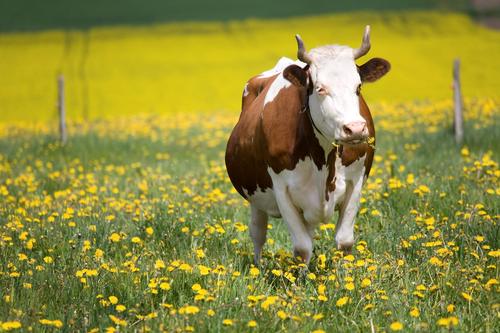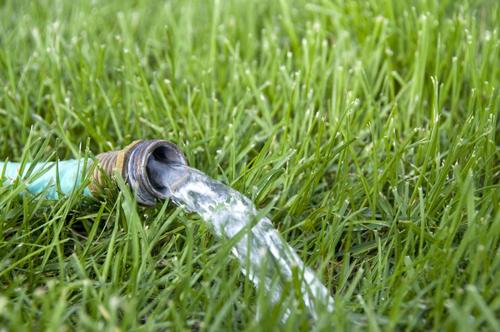Have you ever wondered how a plant-based diet could help combat global warming? The greatest contributor to the cause is human activity, to reduce this we often do small daily tasks such as taking the bus or walking to campus instead of driving, but changing your diet to one that’s vegan is a whole different way to help reduce greenhouse gas emissions, conserve water, and even protect habitats and species.
Reduction in Greenhouse Gas Emissions (GHGs)
 Source: Compassion in World Farming
Source: Compassion in World Farming
Carbon dioxide is a significant polluter that contributes to global warming as it adds to the greenhouse effect, which drastically stresses and damages our environment. The United Nations Food and Agriculture Organization (FAO) states that livestock production is responsible for approximately 14.5% of global greenhouse gas emissions. The Worldwatch Institute, however, states that its contribution to GHG emissions could be as high as 51%. About 37% of these GHG emissions come from the manure that animals produce, which in turn produces methane, a gas that heats the earth almost 20 times faster than carbon dioxide. Other agriculture emissions come from preparing land for livestock, transportation, and producing crops to feed the animals, which creates another harmful gas called nitrous oxide.
This shows that the process of meat production requires large amounts of energy and emits more greenhouse gas emissions than growing and consuming vegetables and fruits. A study in the United States suggests that going on a plant-based diet can save 1.5 tons of carbon dioxide per year!
Conservation of Water
 Source: The Stanford Flipside
Source: The Stanford Flipside
Unlike most plant-based foods, livestock uses a significant amount of fresh water to sustain, this is a concern especially in areas that are facing water scarcity. Animals need to drink water and further wash and clean their living areas and themselves, consuming a vast amount of fresh water. Furthermore, Stanford Magazine states that producing one pound of animal protein requires 100 times more water than producing one pound of grain protein! Dairy products also use large amounts of water to produce and prepare for human consumption. According to the Water Footprint Network, it takes almost 1,000 gallons of water to produce just one gallon of milk!
Protection of Habitats and Species
 Source: Ranger Rick
Source: Ranger Rick
Animal agriculture is the largest contributing factor to habitat extinction and loss. Around the globe, approximately 3.1 billion hectares are used for meat and dairy production. This means that vast deforestation and desertification, a process that occurs when livestock grazing ruins native vegetation and increases soil erosion, occurs to make this land available. This not only contributes to the extinction of animals such as red pandas and sloths, but the trees and plants that were once there are no longer present to store carbon dioxide.
Conclusion
Overall, producing plant-based foods requires much less energy and resources than producing animal products. Becoming vegan is just one change in our lifestyle that can help reduce the impact humans have in contributing to global warming. Even if you’re not excited about eliminating meat out of your diet, reducing your intake to one or two less meaty meals every week can make the biggest difference! It’s estimated that a plant-based diet produces 7 times more GHG emissions than a plant-based diet, so having Meatless Mondays can help the planet!
Not sure where to begin? Check out this video for some key vegan and even vegetarian meals in our locations on campus!
References
3 Environmental Benefits of Going Vegan. (2018). Retrieved from https://www.ombar.co.uk/blogs/news/3-environmental-benefits-of-going-vegan
4 Ways a Vegan Diet Benefits the Environment. (2019). Retrieved from https://www.22daysnutrition.com/blog/4-ways-a-vegan-diet-benefits-the-environment
Casavant, M. (2019). The Environmental Benefits of a Vegan Diet. Retrieved from https://www.yogiapproved.com/health-wellness/environmental-benefits-vegan/
McNally, J. (2010). Can Vegetarianism Save the World? Nitty-gritty. Retrieved from https://stanfordmag.org/contents/can-vegetarianism-save-the-world-nitty-gritty
Sandhu, S. (2019). Would veganism help save the planet? Fact-checking the diet’s environmental benefits. Retrieved from https://inews.co.uk/news/veganism-environmental-benefits-impact-help-save-planet-fact-check/
Top 10 Reasons Why It's Green to Go Veggie. (2018). Retrieved from https://www.downtoearth.org/go-veggie/environment/top-10-reasons
Ventrice, M. (2015). 5 Ways Eating More Plant-Based Foods Benefits the Environment. Retrieved from https://www.onegreenplanet.org/environment/how-eating-more-plant-based-foods-benefits-the-environment/





